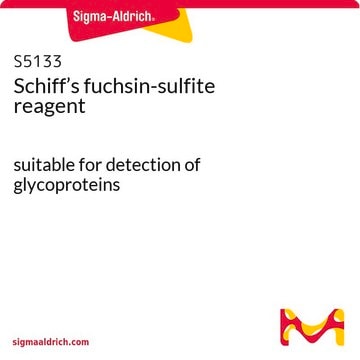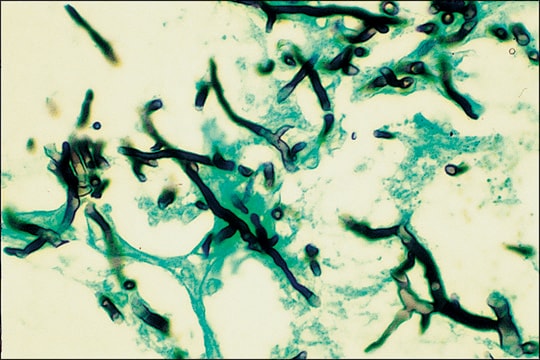Recommended Products
shelf life
Expiry date on the label.
IVD
for in vitro diagnostic use
application(s)
hematology
histology
shipped in
wet ice
storage temp.
2-8°C
Application
Kit Components Only
- Hematoxylin Solution, Gill No. 3 (kit only) 100 mL
- Periodic Acid Solution (395-1) 2 x 100
- Schiff's Reagent (kit only) 4 x 50
related product
Signal Word
Danger
Hazard Statements
Precautionary Statements
Hazard Classifications
Acute Tox. 4 Oral - Aquatic Chronic 3 - Carc. 1B - Eye Dam. 1 - Met. Corr. 1 - Skin Corr. 1 - STOT RE 2 Oral
Target Organs
Kidney
Storage Class Code
6.1C - Combustible acute toxic Cat.3 / toxic compounds or compounds which causing chronic effects
WGK
WGK 3
Certificates of Analysis (COA)
Search for Certificates of Analysis (COA) by entering the products Lot/Batch Number. Lot and Batch Numbers can be found on a product’s label following the words ‘Lot’ or ‘Batch’.
Already Own This Product?
Find documentation for the products that you have recently purchased in the Document Library.
Customers Also Viewed
Articles
Fungal stains remain an important tool in the histology laboratory's diagnostic arsenal for identifying infectious microorganisms.
Fungal stains remain an important tool in the histology laboratory's diagnostic arsenal for identifying infectious microorganisms.
Fungal stains remain an important tool in the histology laboratory's diagnostic arsenal for identifying infectious microorganisms.
Fungal stains remain an important tool in the histology laboratory's diagnostic arsenal for identifying infectious microorganisms.
Our team of scientists has experience in all areas of research including Life Science, Material Science, Chemical Synthesis, Chromatography, Analytical and many others.
Contact Technical Service














